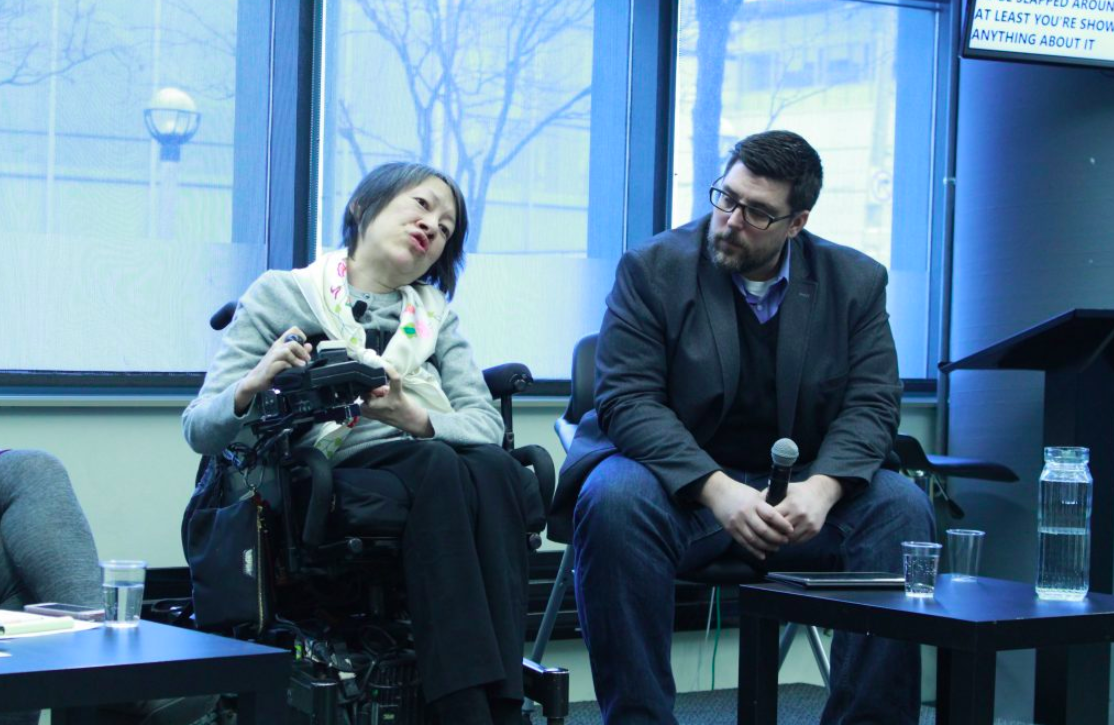News coverage of people with disabilities tends to rely on tired clichés that present them as “tragic but brave,” the “supercrip” or the “object of charity,” says a leading disability activist.
Ing Wong-Ward, associate director of Toronto’s Centre for Independent Living, urged able-bodied journalists to abandon the practice of writing “inspiration porn,” a term coined during a 2012 TED Talk by the late disability rights activist Stella Young. Inspiration porn presents people with visible disabilities as being heartwarming or motivational simply for existing. The results, Wong-Ward said during a Feb. 5 discussion at the Ryerson School of Journalism, are stories that are less than newsworthy.
“This whole notion of ‘heartwarming’ – why is it people with disabilities are somehow more heartwarming than others?” asked Wong-Ward, a former CBC producer who was born with spinal muscular atrophy and uses a wheelchair. “It’s a little harder for me to get out of bed than a lot of people, but that’s not an achievement.”
The panel discussion about how journalists can produce better stories about disability was organized by the ReelAbilities Toronto Film Festival, the Ryerson Journalism Research Centre, and Access Ryerson. It was live-streamed (see below) and featured a live transcription to increase viewing accessibility.
An overall theme of the discussion was that that able-bodied journalists know far too little about covering people with disabilities. Journalism education is partly responsible, said panelist Keren Henderson, an assistant professor at the S.I. Newhouse School of Public Communications in Syracuse, N.Y. She said most journalism professors no longer work in the industry and need to catch up with evolving norms.
“[Journalism education] is still quite segregated,” Henderson said when asked about how disability and intersectionality—the theory of how different types of discrimination interact and overlap—are addressed in journalism schools. “We have lists of style guides for different identities, and I don’t see a lot of intersectionality between them in the education system.”
Panelist David M. Perry, a columnist at Pacific Standard Magazine, said continuous updating and education are essential for journalists who write stories about disability: “There are no perfect words,” he said. “Whatever norms we’re learning today will be different in 20 years, and that’s okay.”
Continue reading this story on the Ryerson Journalism Research Centre website.

